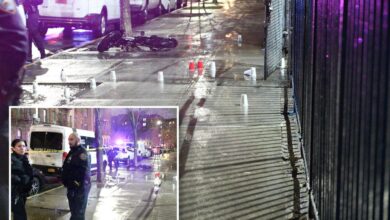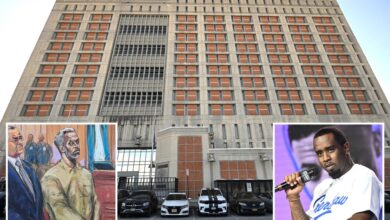Anti-Israel Columbia protester Mahmoud Khalil can be deported, judge rules, but it won’t happen immediately

Mahmoud Khalil, a Syrian-born permanent resident in the US, is facing potential deportation over his involvement in anti-Israel demonstrations at Columbia University. The immigration judge’s ruling in a Louisiana federal court on Friday has sparked a heated debate over free speech rights and government intervention in political activism on university campuses.
Khalil, 30, was arrested by ICE agents on March 8 inside his university-funded Manhattan apartment, where he lived with his pregnant American citizen wife. The arrest was part of a broader crackdown by the Trump administration on anti-Israel protesters at universities. Khalil was then transferred to a detention center in Jena, Louisiana, far away from his wife.
His lawyers have been vigorously fighting the arrest, arguing that it violates his First Amendment right to free speech. They filed a habeas corpus petition in New Jersey federal court, claiming that Khalil was targeted by the government for his anti-Israel activities. ICE and the Department of Homeland Security are using an obscure law that allows the Secretary of State to deport noncitizens who pose a potential threat to US foreign policy.
During the immigration court hearing, Secretary of State Marco Rubio submitted a memo arguing for Khalil’s deportation based on his participation in “antisemitic protests and disruptive activities.” The memo claimed that Khalil’s presence in the US undermines efforts to combat antisemitism and protect Jewish students from harassment and violence.
Khalil, a former employee of the United Nations Relief and Works Agency for Palestine Refugees, moved to the US in 2022 to study at Columbia University. He led Columbia United Apartheid Divest (CUAD), a student organization that has been linked to radical ideologies and has called for the “end of Western civilization.” Khalil was actively involved in negotiating with Columbia administrators during protests on campus.
His lawyer, Marc Van Der Hout, criticized Rubio’s memo, arguing that it had nothing to do with foreign policy. Khalil’s legal team believes that he is being targeted for his beliefs, which are protected under free speech laws. They claim that the government lacks substantial evidence against Khalil and is using his activism as a pretext for deportation.
The case has raised concerns about the government’s use of immigration laws to suppress political dissent and target individuals based on their beliefs. As Khalil continues to fight his deportation, the outcome of his case will have far-reaching implications for the rights of activists and the boundaries of free speech in the US.





